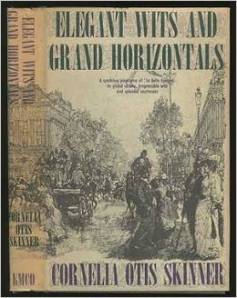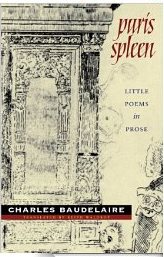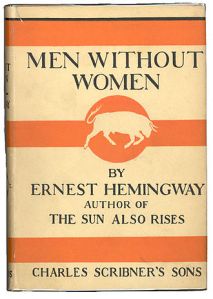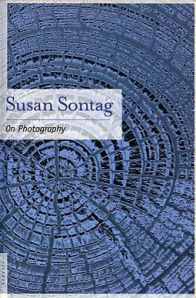In a literary fiction seminar I attended at a recent convention in Seattle, University of Washington professor, Scott Driscoll, discussed a fourth point of view I had heard of in college, that of the detached observer. I had forgotten about it, and Driscoll gave it a name I’d never heard of: the Flâneur (idler, lounger, loiterer.) Many of you have heard of it as third-person objective or third-person dramatic. I see it as a completely separate way to show a story.
 Writing in 1962, Cornelia Otis Skinner said that there is no English equivalent of the term, flâneur, “just as there is no Anglo-Saxon counterpart of that essentially Gallic individual, the deliberately aimless pedestrian, unencumbered by any obligation or sense of urgency, who, being French and therefore frugal, wastes nothing, including his time which he spends with the leisurely discrimination of a gourmet, savoring the multiple flavors of his city”.
Writing in 1962, Cornelia Otis Skinner said that there is no English equivalent of the term, flâneur, “just as there is no Anglo-Saxon counterpart of that essentially Gallic individual, the deliberately aimless pedestrian, unencumbered by any obligation or sense of urgency, who, being French and therefore frugal, wastes nothing, including his time which he spends with the leisurely discrimination of a gourmet, savoring the multiple flavors of his city”.
 The French author, Charles Baudelaire, characterized the flâneur as a “gentleman stroller of city streets.” He saw the flâneur as having a key role in understanding, participating in and portraying the city. Thus, in the narrative, a flâneur plays a double role by existing as a present, but ignored, member of society who remains a detached observer of all that occurs within the story.
The French author, Charles Baudelaire, characterized the flâneur as a “gentleman stroller of city streets.” He saw the flâneur as having a key role in understanding, participating in and portraying the city. Thus, in the narrative, a flâneur plays a double role by existing as a present, but ignored, member of society who remains a detached observer of all that occurs within the story.
Having the option to use this point of view in the narrative of genre fiction opens up many possibilities for originality an author may not have considered:
- he is NOT omniscient as in having complete or unlimited knowledge, awareness, or understanding of the fictional universe–he doesn’t know everything–but he does know what he sees.
- he sees more than the individual characters do because his random travels take him all over town regularly, and he observes most of the tale as it unfolds.
- Because he only knows what he sees, some information crucial to the resolution of the final events will be revealed to him at the last minute–a surprise to him too. When the last pieces of the puzzle are put together, his commentary summarizes the fall-out and final outcome of the characters involved.
 It is a POV used in classic french modernist literature to describe the story of certain social scenes in the city, but I can see this as a useful way to relate the events on a space-station, or indeed in many traditional genre fiction social settings.
It is a POV used in classic french modernist literature to describe the story of certain social scenes in the city, but I can see this as a useful way to relate the events on a space-station, or indeed in many traditional genre fiction social settings.
Now for the downside of using the flâneur as your vehicle to convey your narrative:
- He is not reliable—he has his own personality, offering subtle judgments and unconscious opinions on the behavior of the characters. Therefore, just as in a first-person narrative, the reader cannot be sure he is telling the unbiased truth.
- The narrator tells the story without describing any of the character’s thoughts, opinions, or feelings; so the reader can only guess at character motivations, and must assume the objective observer truly is objective and has told the truth in that regard.
- It separates the reader from the intimacy of the action and slows the pace down.
- It could become voyeuristic, if one writes graphic love scenes. {eeew.}
 The POV of a flâneur is also a vehicle used in in art, and in street photography. Susan Sontag in her 1977 collection of essays, On Photography, describes how, since the development of hand-held cameras in the early 20th century, the camera has become the tool of the flâneur:
The POV of a flâneur is also a vehicle used in in art, and in street photography. Susan Sontag in her 1977 collection of essays, On Photography, describes how, since the development of hand-held cameras in the early 20th century, the camera has become the tool of the flâneur:
The photographer is an armed version of the solitary walker reconnoitering, stalking, cruising the urban inferno, the voyeuristic stroller who discovers the city as a landscape of voluptuous extremes. Adept of the joys of watching, connoisseur of empathy, the flâneur finds the world “picturesque.”
—Susan Sontag, On Photography, pg. 55
I don’t see myself using this style of POV for an entire novel, but I can think of a thousand ways to use it in short-stories. Come November, when NaNoWriMo begins, I may give it a whirl, just for practice. Writing is a craft and I love finding different ways to express it. A fresh point of view to write from can only stretch my writing skills.








Thank you for giving me my next writing challenge!
LikeLike
@ Stephen–always glad to be of assistance!
LikeLike
Great article. I’d always thought a flâneur was a lazy, rich git with pretensions of superiority, but now I see I am in error. Seem to remember that Poe used 4th person POV in something, but can’t remember what.
LikeLike
@JD Hughes — In some original contexts, that WAS the flâneur — the idle rich man was the only person with the free time to make a commentary on the society around him. I will have to check out the Poe connection.
LikeLike